Janet Bolton creates her tranquil and harmonious textile art pictures using the simplest of hand sewing techniques; collage, appliqué and straight stitch.
Her inspiration comes from visual experiences, memories and imagination. Sometimes a fabric’s texture or history inspires a composition. For Janet, the placement of each element within the composition is important to her work, in order to evoke a particular feeling. She favours an uncluttered approach with good use of space, to highlight the collaged areas, their colour and composition.
Janet trained in Fine Arts before moving into textile art, following her lifelong passion for working with fabric. She has been on the Crafts Council Selected Index of Makers since 1985 and her work is held in both public and private collections. Janet has become a master of interlacing her home and work commitments to suit her desired lifestyle, working from her home studio and taking the time to enjoy the process of creation.
In this interview, Janet shares how her career developed and gives her advice for aspiring textile artists. She also describes the process of creating her very personal artworks, driven by memories and experiences.
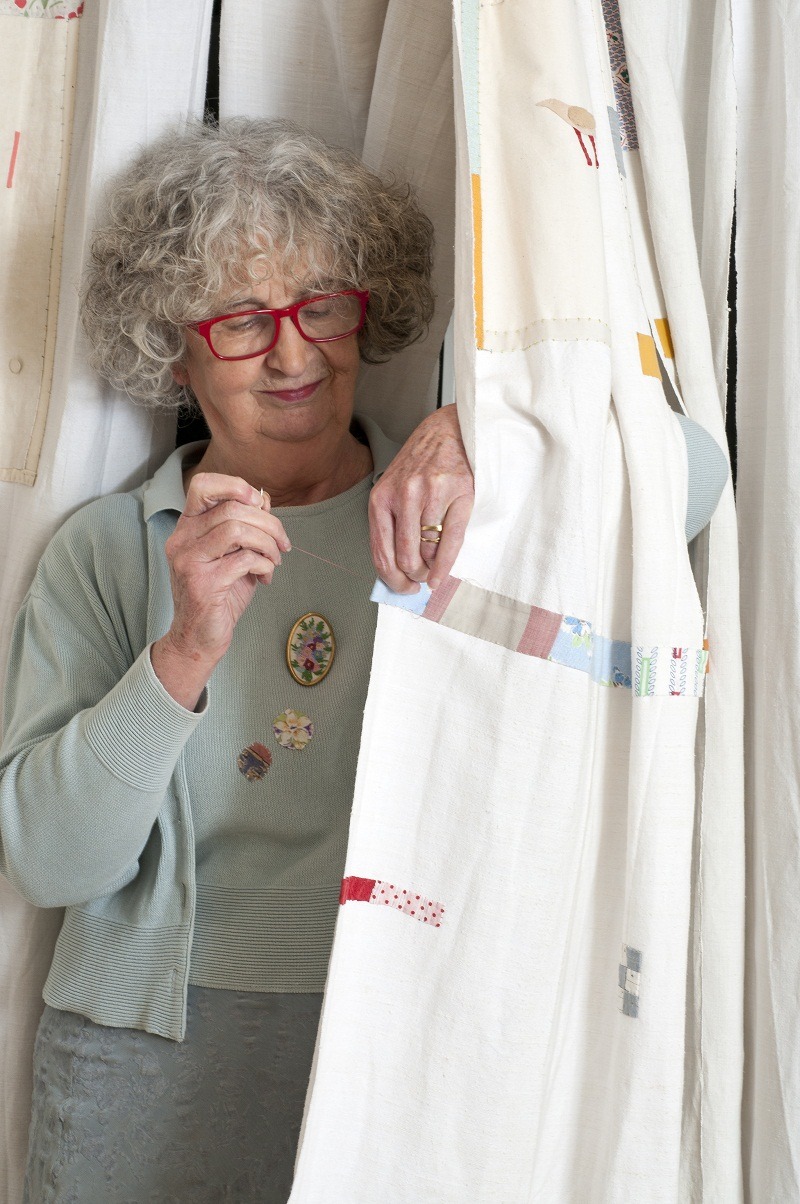
The path from quilts to collage
TextileArtist.org: What initially attracted you to textiles as a medium? How was your imagination captured?
Janet Bolton: Economic necessity first led me to work with textiles. I needed some heavy curtains to cover some draughty sash windows but had a limited budget so I made them. I made patchwork quilts to the required size and lined them with old blankets. The curtains did the job well and were a pleasure to work on.
At that time in the early seventies, quilts were not as popular in the UK as they are today, but I had always loved them. After making my curtains, I started to work on a much smaller scale, making images using fabric in preference to paint.
When I saw the work of Elizabeth Allen at the Crane Kalman Gallery in Knightsbridge, it strengthened my decision to work in fabric. She was a retired seamstress living in Kent and I appreciated the simplicity of the way she worked with materials she had to hand. An article was written about this little-known artist in the Journal of the British Quilt Study Group, Issue 18 in 2017.
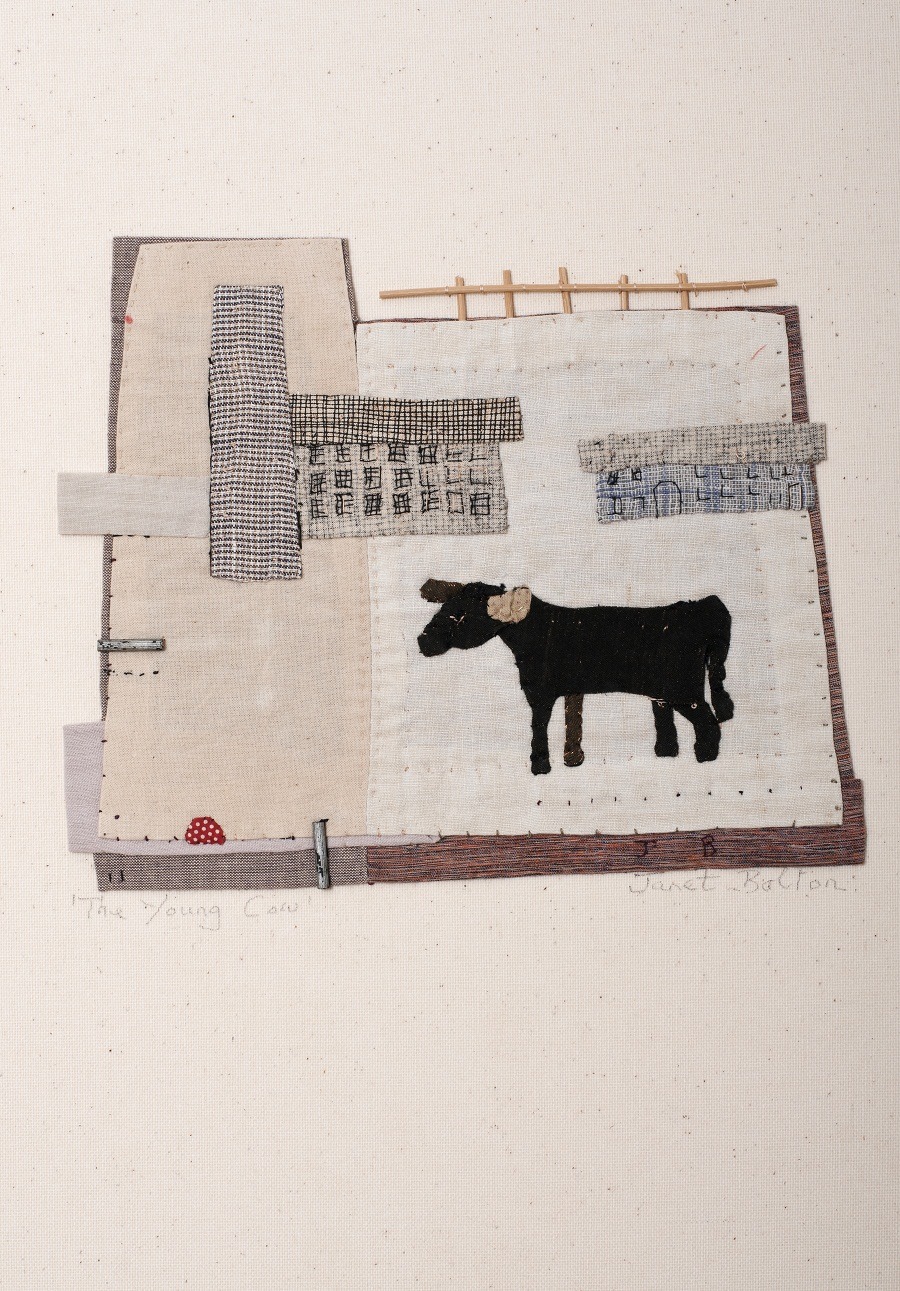
What or who were your early influences and how has your life/upbringing influenced your work?
When I was growing up in rural Lancashire, the cotton industry was still thriving. People knew about fabric and appreciated its qualities.
My father enjoyed making toys for us when we were children. I grew up seeing his pure pleasure of making things and working with his hands.
As a child, I’d always enjoyed arranging objects. I would place flower heads in soft ground to make imaginary gardens or arrange autumn fruits and seeds in shoebox lids for the school nature table. I loved drawing and painting. I even chose to take Biology A level simply because I enjoyed doing the explanatory drawings!
After school, I went to Art College to study fine art. While I was in the printmaking department I was seduced by seeing lengths of fabric coming in to be printed on. I had not realised how much the love of fabric had become part of me.
We were encouraged to try different media and techniques but also to follow our own instincts. Instead of continuing with painting I took up printmaking.
This was a huge mistake and I didn’t enjoy the processes involved. There’s nothing like trying out something and then finding you don’t enjoy it! It can be a negative experience but the end result made me realise how I wanted to work and in which area.
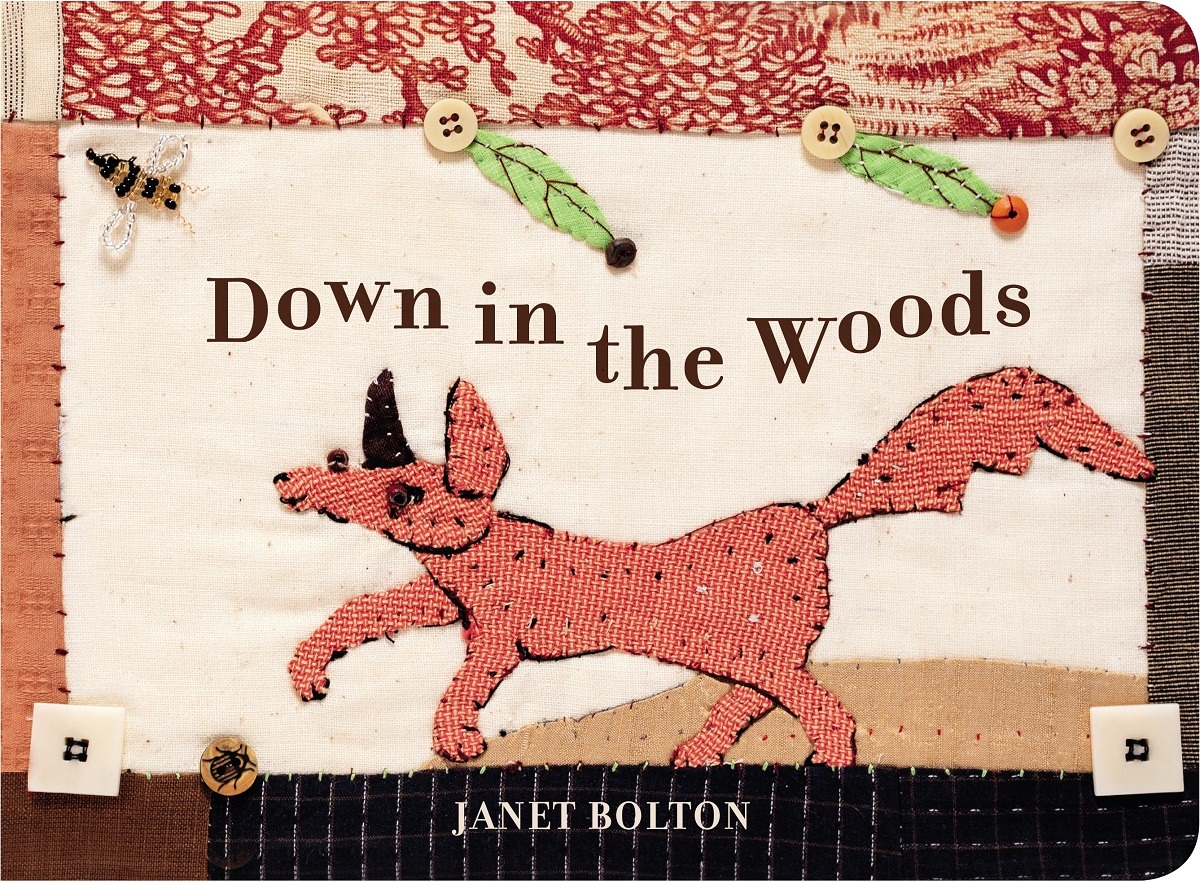
What was your route to becoming an artist?
While I was at home looking after my children, I developed my own way of working to suit my lifestyle and responsibilities.
I made fabric bags and purses to sell at local craft markets. At these markets, I used my small textile pictures as stand decorations (no one was framing small pieces as art in those days). To my surprise, they were much appreciated and this led me to being offered a stand at The Chelsea Craft Fair.
After a while, other opportunities flooded in. I became a member of Contemporary Applied Arts and also the Craft Council’s Selected Index of Makers. I spent many years going with the Craft Council to New York to exhibit at the New York Craft Fair with them.
I have published several books about my work as well as some children’s books, one of which is on the New York schoolchildren’s curriculum. I am thrilled when I receive letters from groups of children. My latest book is ‘[easyazon_link identifier=”B01FKSI33W” locale=”UK” tag=”wwwtextileart-21″]Fabric Pictures: A Workshop with Janet Bolton ‘. In spring 2019 ‘[easyazon_link identifier=”9082683636″ locale=”UK” tag=”wwwtextileart-21″]Down in the Woods ’, a book for small children will be published by Helene Lesger.
I became a visiting lecturer at various art schools including the Royal College. These days I am a short course tutor at West Dean College and I teach at other venues each year. I also enjoy being invited to work with the flourishing guilds of textile enthusiasts.
My workroom is in my house and this has always been a necessity for me. My home and working life are completely interwoven. Isn’t it amazing how many words that we use to describe life have a textile connection?
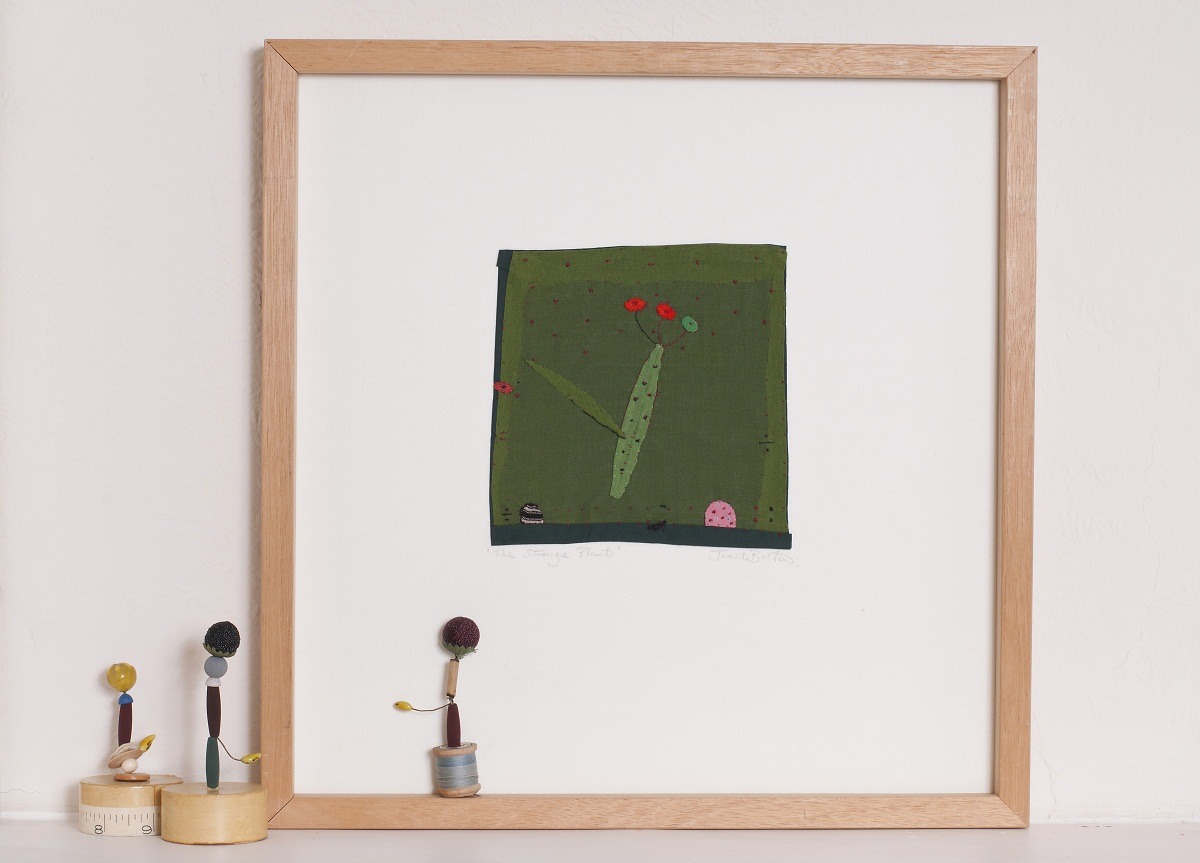
How to build a picture with fabric
Tell us a bit about your chosen techniques and how you use them
I use the simplest of hand-sewing techniques. Usually, I work directly with the fabrics rather than transposing an idea worked out in another medium.
Inspiration springs from my memory and imagination, or following a visual experience. My ideas change and develop as the work progresses. I allow each piece to evolve and take on a life of its own. An idea gives rise to each artwork but I am also pleased when people bring their own interpretation to an image that is different from my own.
I select my colour palette, then arrange and rearrange pieces of cut-out fabrics on to a prepared background. I finish the piece by turning in the edges of the shaped materials. This is almost like a ‘sketching’ process whereby the shapes can be altered or even removed if necessary. I spend more time taking elements away rather than adding them; the notion ‘less is more’ is meaningful to me! I enjoy leaving empty space in my compositions.
This is the most time-consuming stage, but there is no sense in rushing as the journey is so enjoyable. I create my own imaginary world.
Then I use stitch in various ways as a drawn line. The stitching keeps the pieces in place as well as adding a textural element to the finished work. I mount each piece onto card and frame it in a purpose-made shallow box frame.
I work on several pieces at the same time. Moving from one to the other allows me to reassess each one with a fresh eye. Some pieces, I call them ‘put-togethers’, remain unframed as they’re really just an excuse to place selected fabrics together.
My work moves in circles; I often go back to reinterpret old ideas in new ways. I refer to some themes time and time again, as they have proven to be the perfect subject matter to explore new ideas of colour, composition and intent.
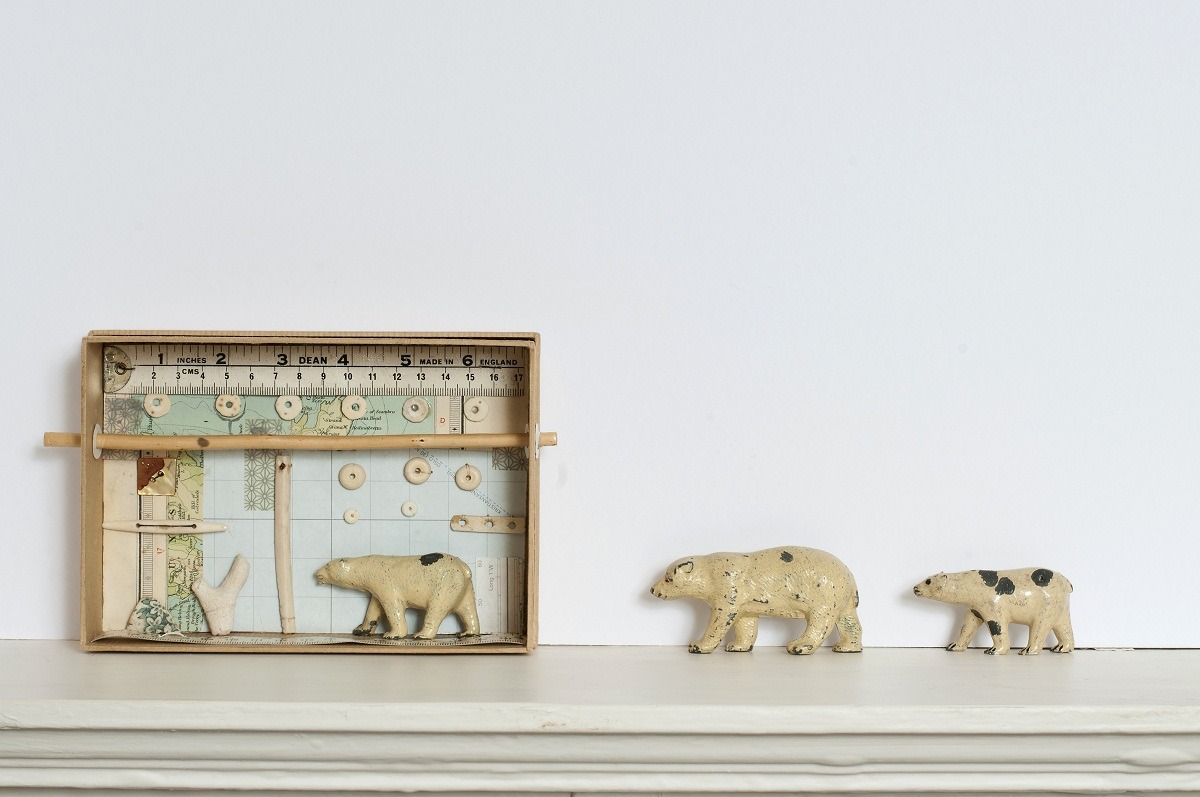
What currently inspires you?
At the moment I’m enjoying working with a variety of mediums to make assemblages.
I do sketch and draw but I use these drawings to feed my imagination. I tend not to use sketches as starting points for my works in fabric.
I find inspiration in the many days I spend arranging compositions and working out ideas. Even if they are never finalised, I consider these investigations as days well spent.
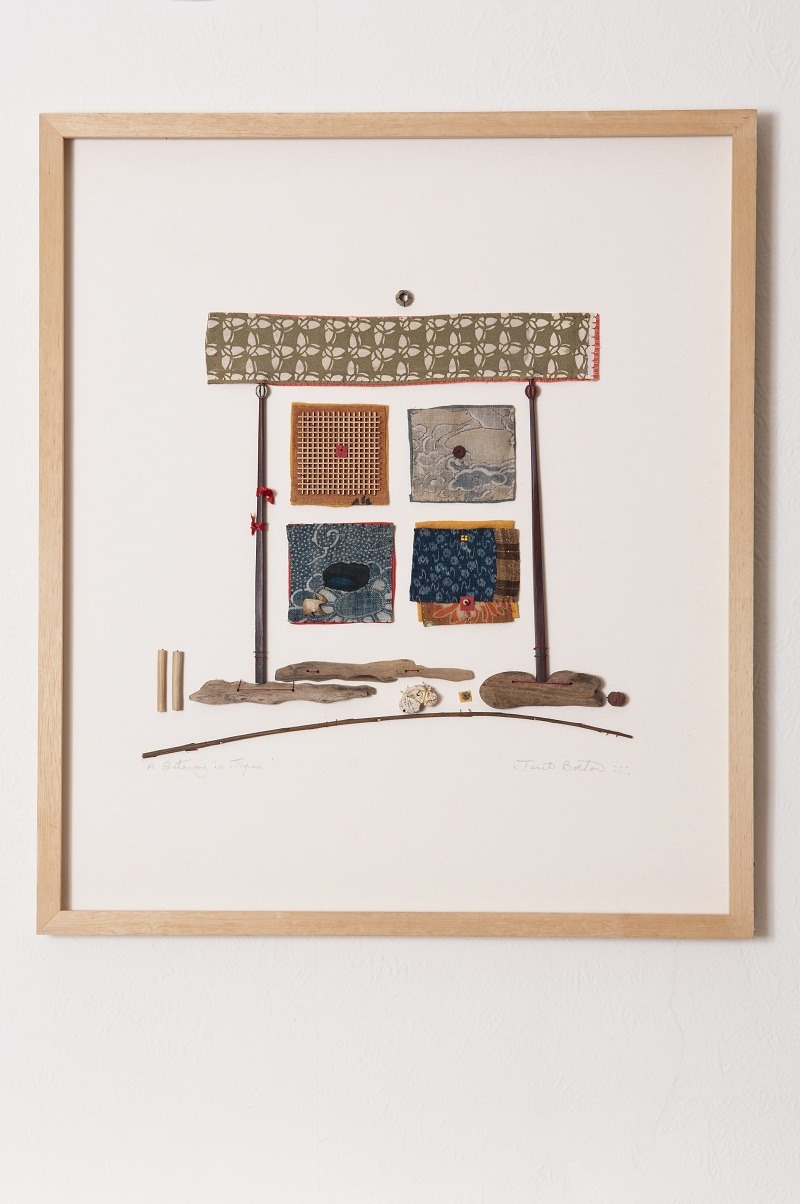
Memories of Japan
Tell us about a piece of your work that holds particularly fond memories and why?
‘A Gateway in Japan’ was inspired by a gift of old Japanese fabrics. They were given to me after one of my trips to Japan to exhibit there.
I wanted this wonderful fabric itself to take centre stage, so I arranged the squares simply as if they were samples. The addition of cane came from noticing the way the Japanese wrap gifts. This also inspired me to incorporate found objects to depict the way old Japanese buildings are often set onto boulders. The use of chopsticks made me smile and reminds me of my time in Japan.
It isn’t at all unusual for the fabric to spark a new idea, by bringing back memories of a time and a place.
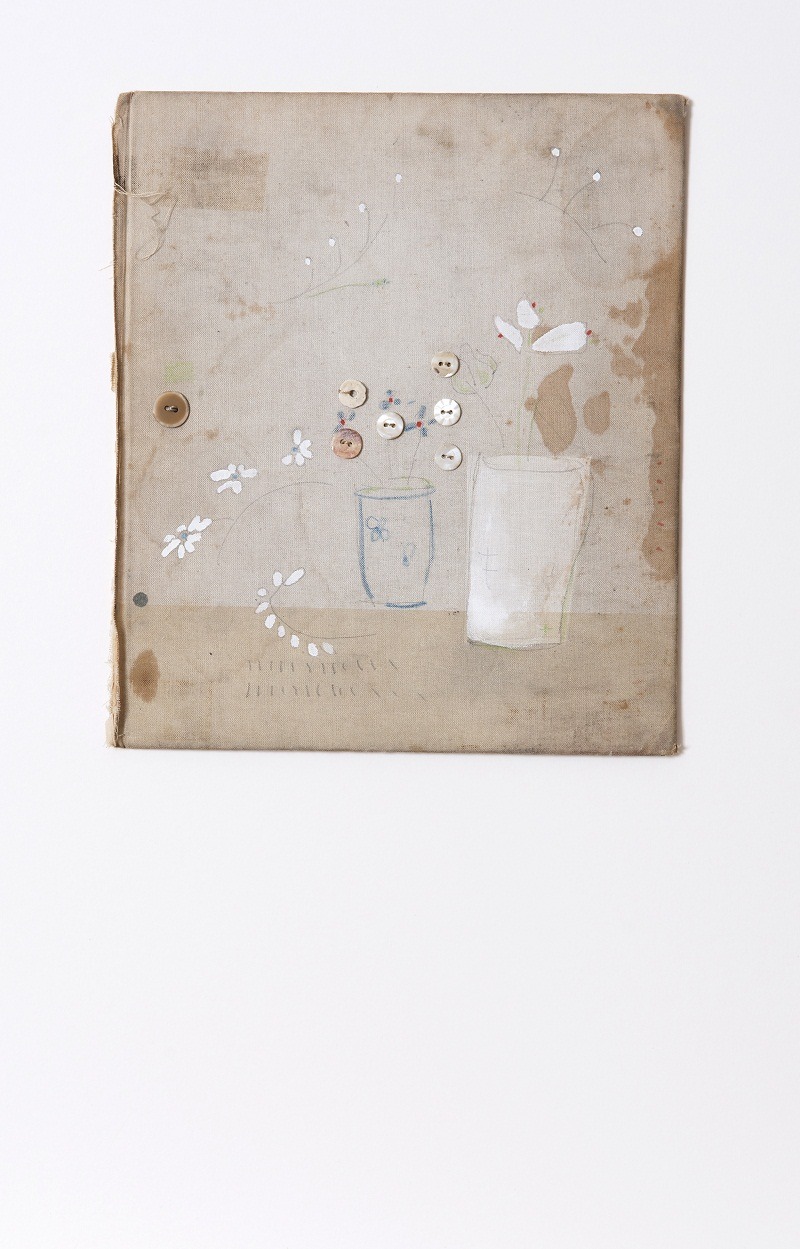
How has your work developed since you began and how do you see it evolving in the future?
My working methods have remained the same over the years, although new inspiration comes at all times and from the most unexpected places.
These days, I probably incorporate more found objects and even use them as backgrounds to work on. Frequently, an object that I may have collected many years ago is just right for what I am currently working on.
In this piece, the only fabric is the linen book cover but fabric, I believe, will always remain my most valued medium.
The personal history that fabric can evoke really warms my heart. Fabric is easily available and can be used to carry on an old tradition or reinvent a tradition. I find this very satisfying.
Each piece is a new and exciting adventure down to the very last stitch! For me, composition and construction go hand-in-hand, with much of the pleasure being in the slow process.
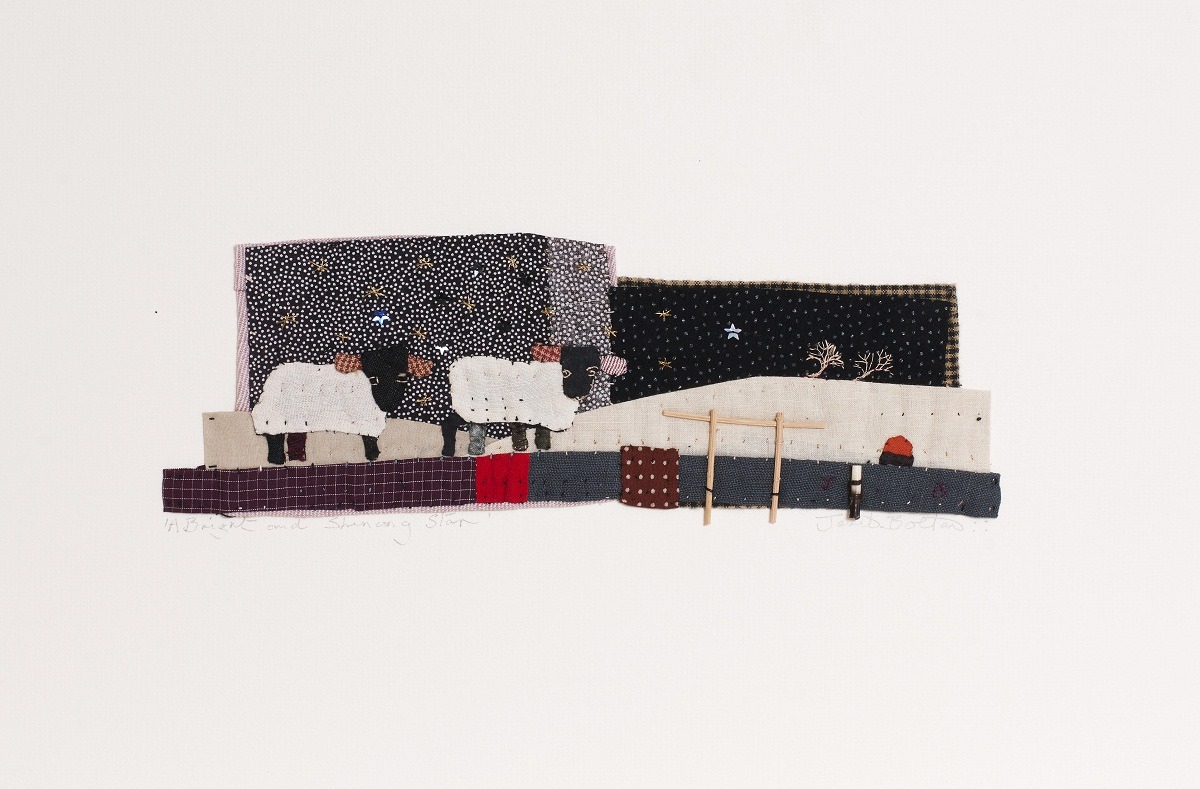
What advice would you give to an aspiring textile artist?
Be true to yourself. You are the most important critic. It doesn’t matter if others don’t appreciate your work.
Treasure and protect the time to make your work, even if you have to supplement earning a living in some other way. Being a maker is so enjoyable and satisfying.
Don’t be afraid to take on challenges that may lead you in another direction.
As a maker, you get to meet the most wonderful people from all walks of life. On one memorable occasion, I spent time with a group of the Quilters of Gee’s Bend, Alabama, when we were giving workshops in Sisters, Oregon. We were even taken above the snow line and played snowballs! When I first saw an exhibition of their quilts in The Whitney Museum in New York, I was completely bowled over by their work. I could never in a million years have imagined that I would be spending time with them!
In some ways, the whole of my exhibiting life and the opportunities I have been given has been a surprise, but I have made the most of it!
For more information visit www.janetbolton.com
If you’ve enjoyed this interview about Janet Bolton, do share it on social media using the buttons below.
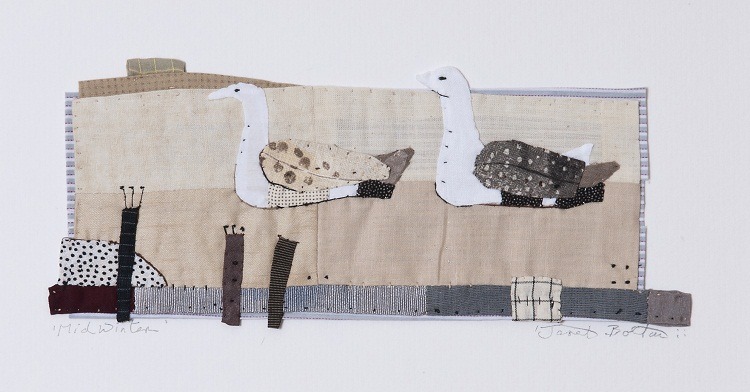
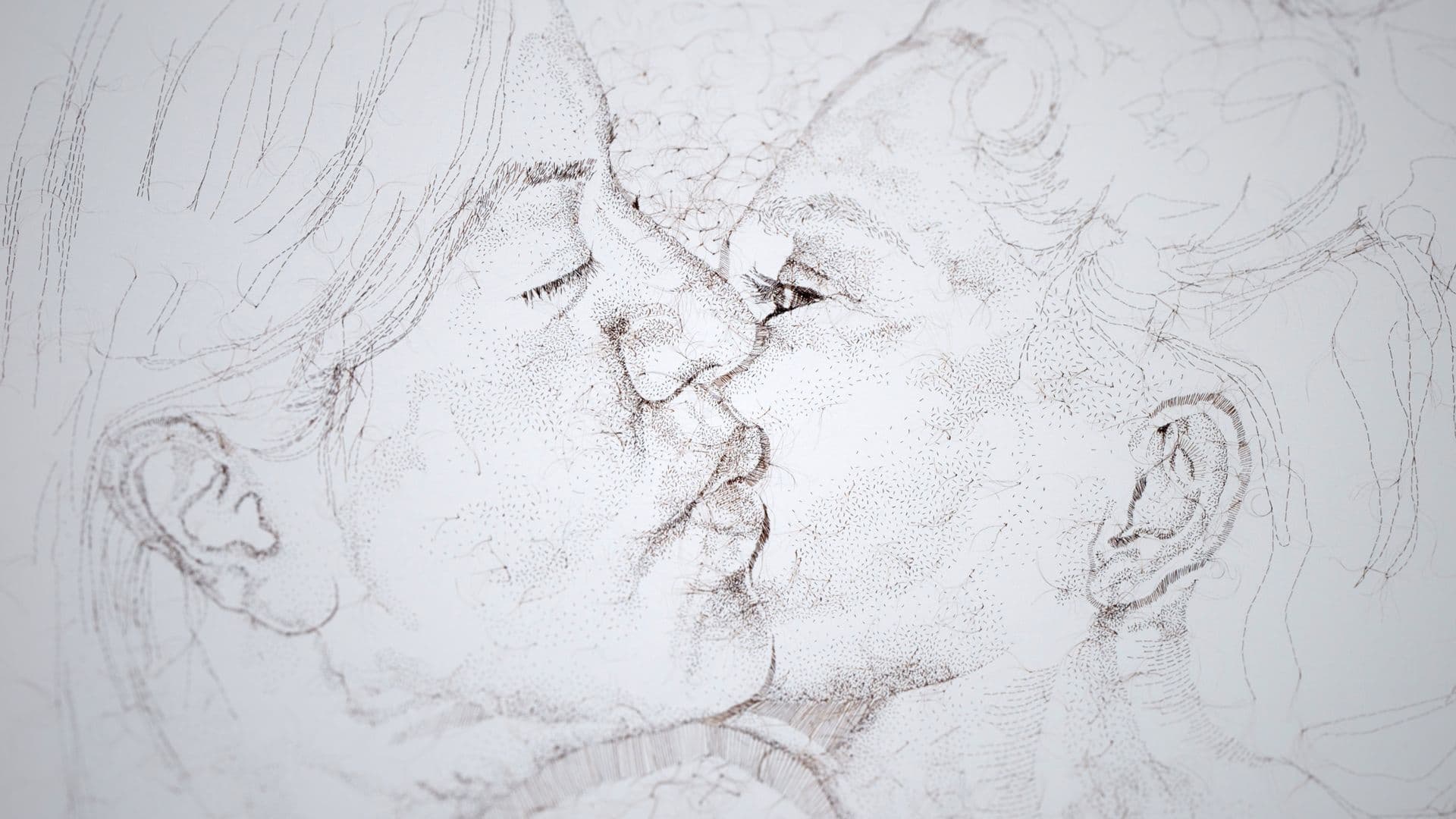
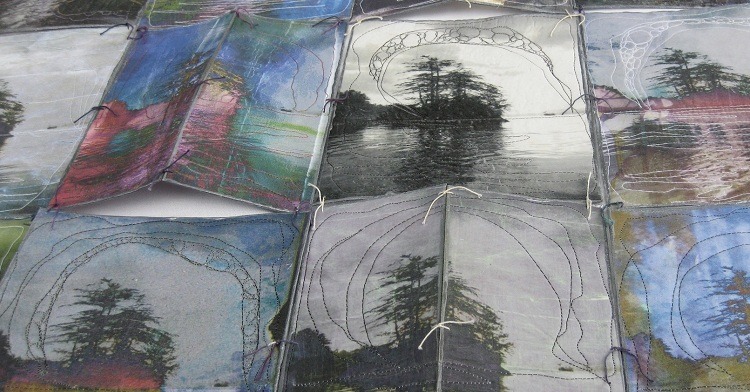
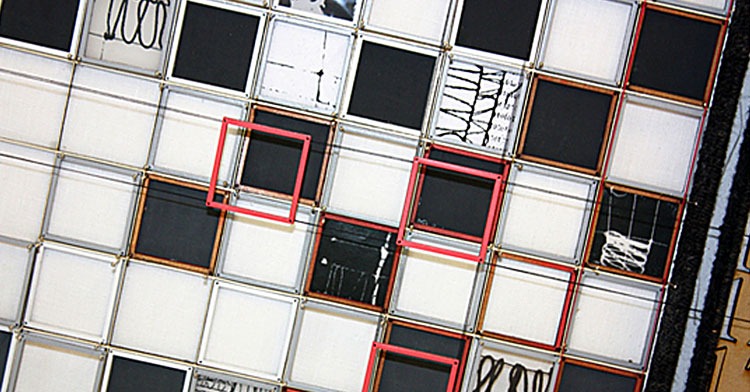
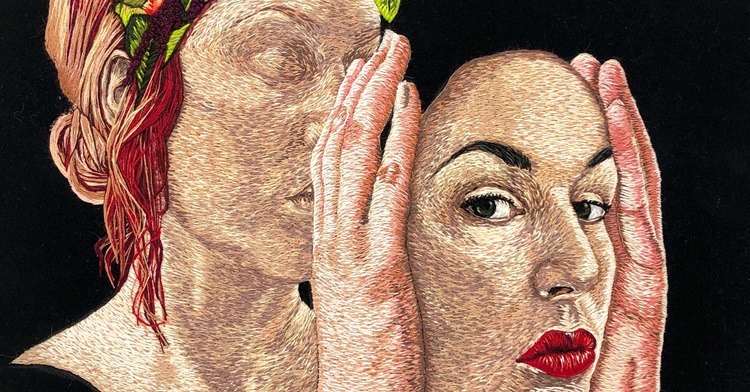
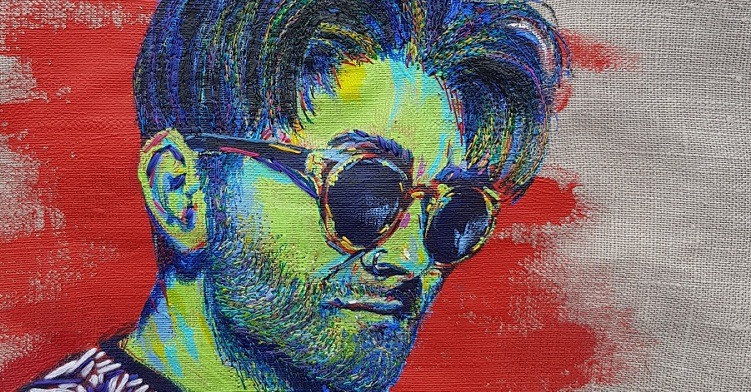
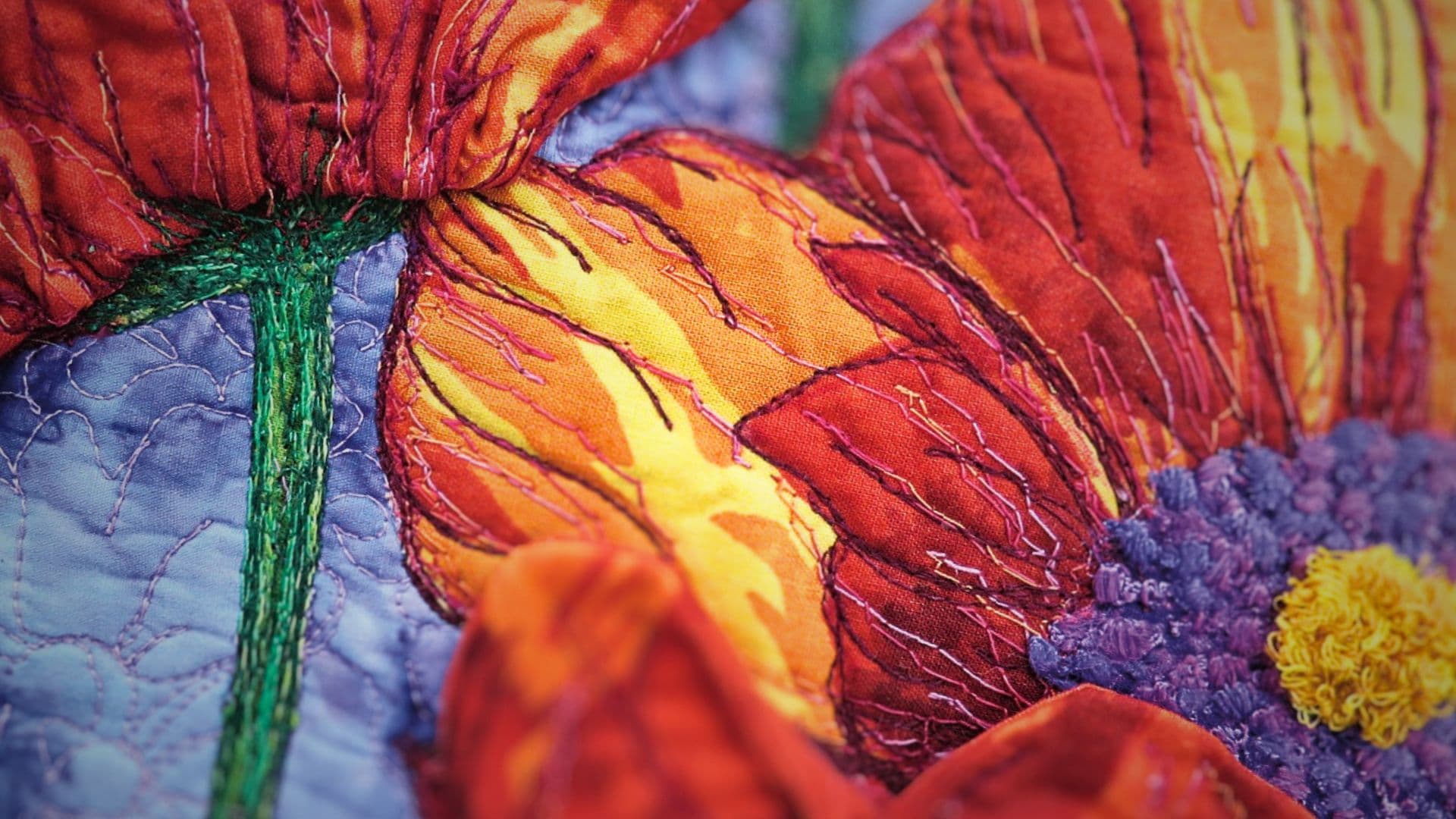
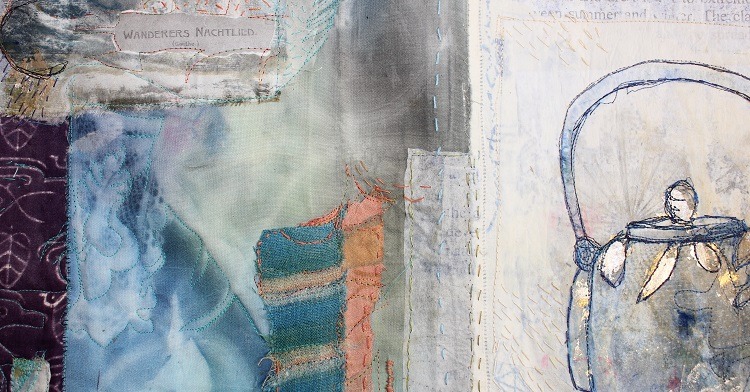
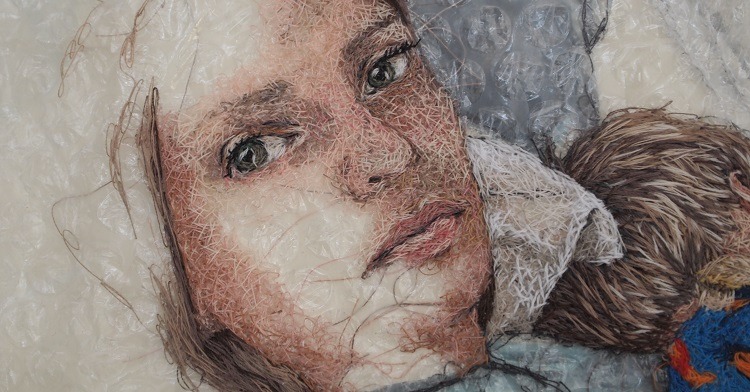
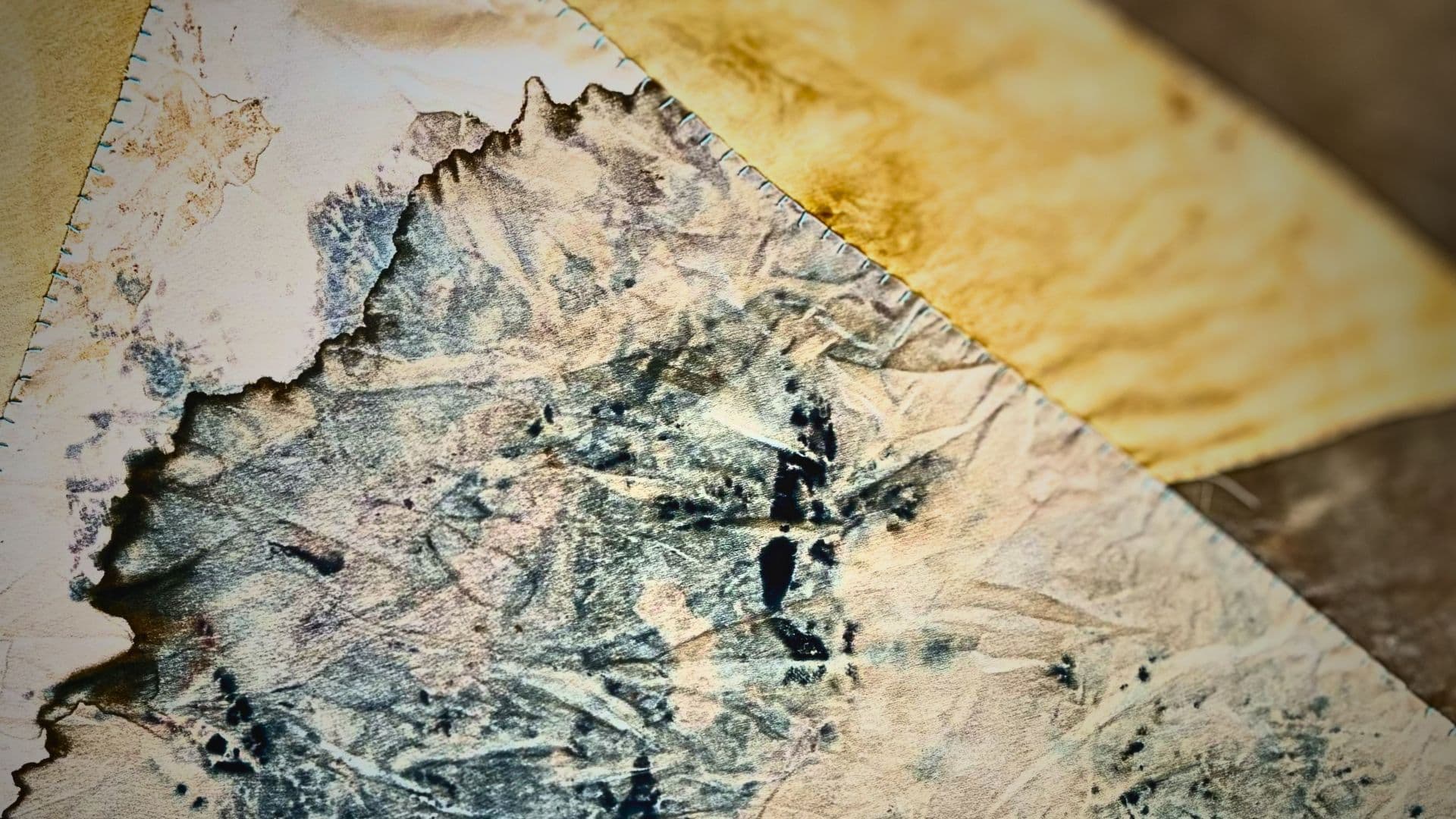
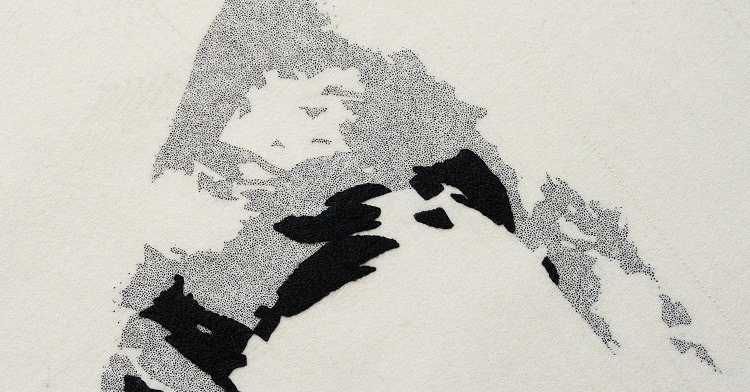
8 comments
Pam Gunnell
I love the simplicity of Janet Bolton’s work. There’s a certain childish joy in them. Thank you for bringing them to me like this.
Linda Bagnall
Love Janet’s work. My daughter and I joined Janet in Cardiff for a workshop.
Saw her work at Cowslip Barn and the Quilt museum in Lampeter in Wales. Love hand stitching. Thank you for sharing.
Robin Guterson
My daughter and I had the privilege of attending one of Janet’s workshops at West Dean College a couple of years ago. It was and remains a highlight of my life. Janet is a warm and generous teacher, and I continue to be inspired by her artistic example. This interview is a lovely reminder. Thank you.
Shirley VD
Thank you so much for this interview. I too Love Janet Bolton’s work. There is so much warmth and story in every piece she makes.
Ann Williams
Excellent interview, loved it and I learned so much from her experience thanks
lulu moonwood murakami
I have loved the work of Janet Bolton for many, many years. I would like to thank the author for such an exceptional interview that has taken me further into Janet’s artistic world and process.
Ann Aston
Thank you so much for the opportunity to learn more about textile art and artists. It is inspirational for me as I am just beginning to break away from traditional quilts to something more experimental. It is a challenging journey as I have no art background. Once again thanks for a great resource.
Ann Aston
Em
This is one of the loveliest articles I have read on textile artist…something about Jane’s work and process totally overwhelms in its simplicity. A marvellous interview!